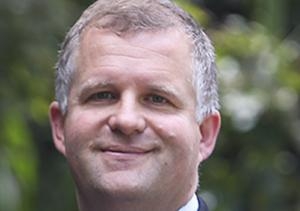Funding cuts blow national vision off course
How quickly the aspiration of having 10 Australian universities in the world’s top 100 can be sacrificed on the altar of political expediency, writes Professor Iain Martin.
How quickly the aspiration of having 10 Australian universities in the world’s top 100 can be sacrificed on the altar of political expediency, writes Professor Iain Martin.

OPINION: How quickly a national vision can be sacrificed on the altar of political expediency. The release last year of the Australia in the Asian Century white paper appeared to be a sentinel event in shaping this country’s future. Across its 25 national objectives, the vital role of the education and university sector was writ large and was, perhaps, best encapsulated in one definitive aspiration, that: “By 2025, 10 of Australia’s universities will be in the world’s top 100.”
The government’s announcement of significant cuts to university funding, coupled with other changes, could not be better designed to achieve the opposite.
To have 10 universities in the global top 100 is an ambitious but commendable goal for a country that sees education and innovation as pivotal to its future. If we wish to deliver on this aspiration then we must look to what makes a university great. Essentially, the “recipe” is simple.
It starts with great people, both staff and students. To this must be added adequate resources and, finally, the university must be afforded sufficient operational autonomy to respond rapidly and independently to changing environments.
This is not my analysis, but that of international tertiary education expert Jamil Salmi, formerly of the World Bank.
The first two components of this mix are almost self explanatory; the third perhaps requires some explanation.
Institutional autonomy is defined by the OECD as “the capability and right of an institution to determine its own course of action without undue interference from the state”. Greater university autonomy leads to high levels of national innovation, higher levels of research productivity and greater application of research to create new products and services.
The proposed funding cuts will affect two of these three components: resources and, consequently, our universities’ capacity to recruit, develop and retain the very best staff.
The third factor, institutional autonomy, is one that the regulators at Australia’s Tertiary Education Quality and Standards Agency seem intent on insidiously eroding through ill-conceived and poorly thought through intrusions into our universities.
Funding reductions and increased regulatory intrusion will make it appreciably harder for those Australian universities ranked in the top 100 to stay there. They make increasing that number very challenging indeed. This is particularly evident when you consider that most of our regional competitors are investing heavily in their university sectors.
Just to maintain Australia’s standing in the global ranking probably requires a 2 per cent annual improvement in performance, something that a 2 per cent funding cut and increasingly intrusive legislation will hardly facilitate.
I acknowledge Australia faces fiscal pressures. However, in a global knowledge economy the aspiration to not only maintain but increase our number of globally competitive universities is one we cannot afford to let slide. There is a clearly identified link between education and research and innovation and between innovation and economic growth. In Australia, the bulk of our basic research and much applied research is done in our public universities. The viability and vitality of tertiary education cannot be separated from our economic future.
We need a serious national debate that recognises the integral role of universities to our economic future, not a sudden cut to funding, no questions asked.
Professor Iain Martin is Deputy Vice-Chancellor (Academic) at UNSW.
This piece was first published in the Australian Financial Review.